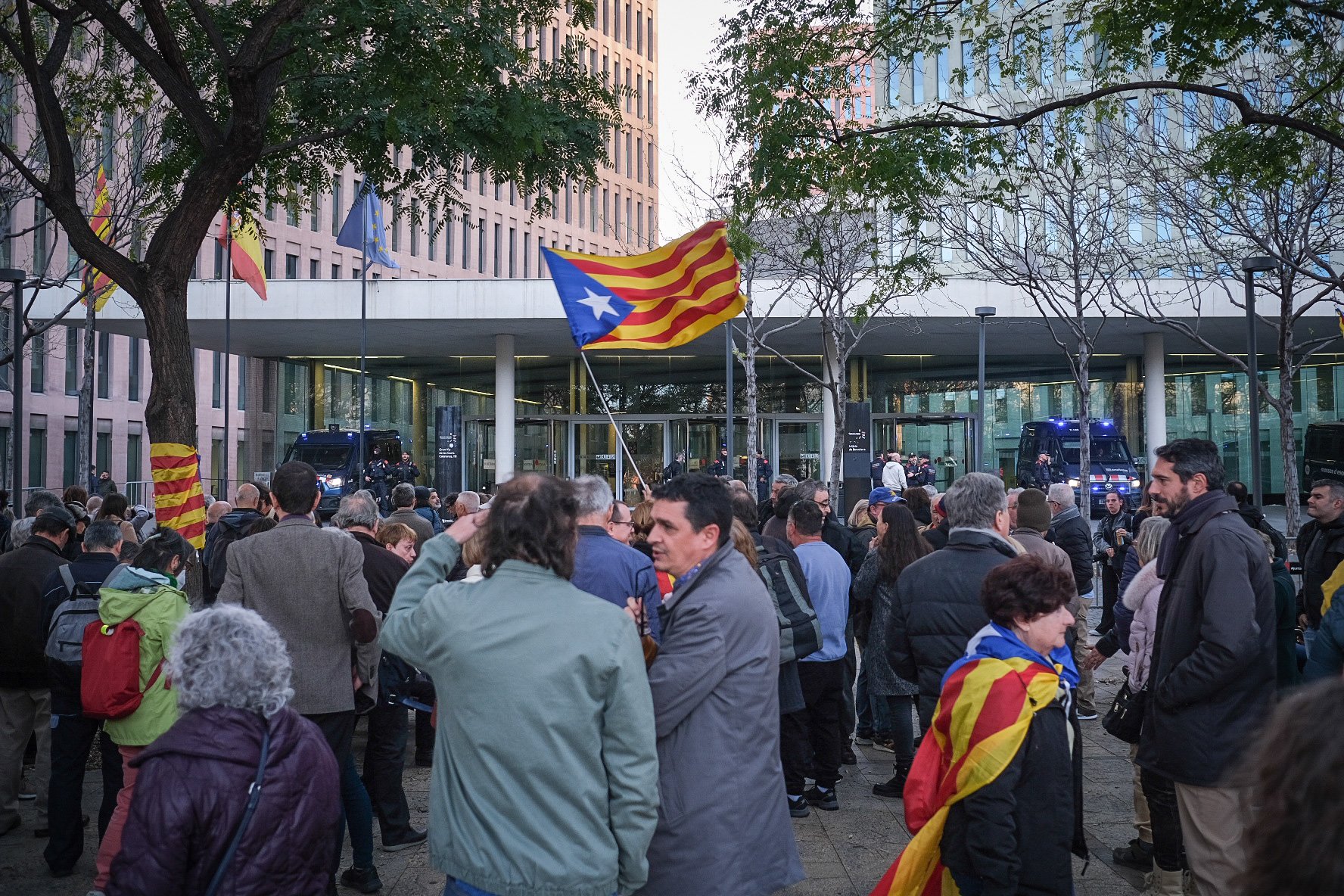A demand for protection. With Clara Ponsatí having been held for more than two hours in the duty courts in Barcelona and no response, Clara Ponsatí's lawyer, Gonzalo Boye, this evening presented a writ of habeas corpus for illegal detention to the judge of Barcelona investigating court number 4, the duty court, so that her situation could be resolved. Ponsatí, who returned to Catalonia this Tuesday after five years in exile, was arrested by the Catalan police, the Mossos d'Esquadra, at the end of her appearance before the media. The Mossos executed the arrest warrant for the MEP, which Supreme Court judge Pablo Llarena confirmed last week against Ponsatí "only for the purpose of taking her statement" for the crime of disobedience of the Constitutional Court over the holding of the 2017 Catalan referendum. The duty court in Barcelona has been calling the Supreme Court to find out if it could give Ponsatí the notification to appear in the Supreme Court, so that she could then be released, as would be the normal and expected action. But, faced with the lack of response from the Spanish high court, Ponsatí's defence team, perplexed, has decided to seek the protection of the judge in Barcelona and to resolve the arrest of the ex-minister.
It was five minutes past six in the afternoon, when a sub-inspector of the Mossos police arrested the former education minister Ponsatí in Plaça de la Catedral, just after she had finished her press conference. The television cameras recorded her arrest. Ponsatí showed her credentials as an MEP, which grants her parliamentary immunity, but the officer made her get into a vehicle displaying the logo of the Catalan police force and drove her to Barcelona's court complex, the Ciutat de la Justicia, where she, her lawyer and supporters continue to wait in the duty courts area for a response from Madrid.
Pro-independence bodies, such as Òmnium Cultural, the Catalan National Assembly and the Alerta Solidària legal group have called for protest rallies, while the former education minister has received shows of support via Twitter, such as that of president in exile Carles Puigdemont, who has demanded the intervention of the President of the European Parliament, who has been informed of the arrest of MEP Ponsatí.
The first to arrive at the courts were Junts and CUP deputies, as well as many members of the public. And also members of the Mossos d'Esquadra, who with the police helicopter, reinforced the surveillance of the judicial building. A group of demonstrators blocked the Gran Via, at the point where it passes the judicial complex.
The arrest warrant
The Supreme Court judge, Pablo Llarena, last week confirmed the Spanish state's arrest warrant for Clara Ponsatí to take her statement as a person under investigation for the crime of disobedience of the Constitutional Court. Llarena updated the warrant due to the repeal of the crime of sedition by the Spanish government. The elimination of the crime of sedition has also favoured the ERC general secretary, Marta Rovira, who, like Ponsatí, is now only accused of disobedience.
If Ponsatí appears before Llarena, the judge will have to refer her case to a court in Barcelona, as he did with Anna Gabriel and the current Catalan foreign minister, Meritxell Serret. In fact, Serret will be tried on Wednesday in the Catalan High Court. The two, both defended by lawyer Iñigo Iruin, appeared before judge Llarena one morning and were released after testifying before him. However, former minister Ponsatí already stated that she would not appear before the judge.
The crime of disobedience does not involve prison sentences, only disqualification from holding public office. And for this reason, the judge insists that the arrest warrant for Ponsatí is so that she appears before him.
In the main photo, protesters gathering this Tuesday evening outside Barcelona's Ciutat de Justicia. /Photo: Carlos Baglietto

